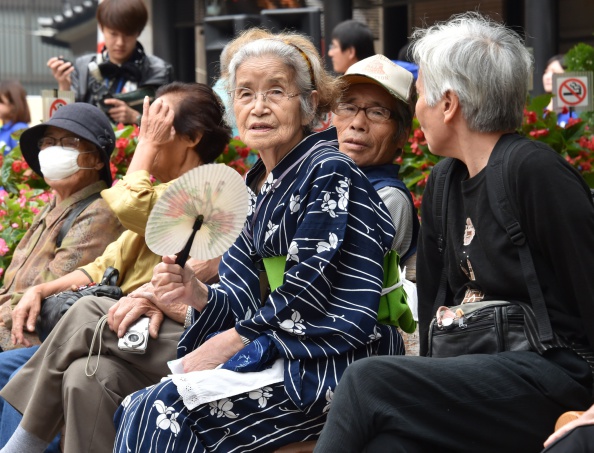
Every year on Senior’s Day, new Japanese centenarians receive a special sakazuki — a silver cup valued at around $64. But as the country’s population continues to grow, the Japanese government has realized that it simply can’t afford to be giving out such lavish gifts any longer.
According to Japan’s Ministry of Health, Labor and Welfare, 29,357 people over the age of 100 were registered in the country last year. When the sakazuki program began over 50 years ago in 1963, there were only 153, the Japan Times reports. The gift program’s cost has risen to over $2 million in 2014 alone.
Japan is renowned for the longevity of its elders, breaking the world record repeatedly for longest-living population. The gift dilemma signals a larger trend for the country, as its demographics continue shifting toward an increasingly aging population. The government expects that, by 2018, the country will have around 39,000 centenarians, the Times says.
The government doesn’t want to leave centenarians unacknowledged altogether though — instead, it’s considering making the sakazuki from a cheaper material or simply sending a congratulatory letter, according to the Times.
More Must-Reads from TIME
- Cybersecurity Experts Are Sounding the Alarm on DOGE
- Meet the 2025 Women of the Year
- The Harsh Truth About Disability Inclusion
- Why Do More Young Adults Have Cancer?
- Colman Domingo Leads With Radical Love
- How to Get Better at Doing Things Alone
- Michelle Zauner Stares Down the Darkness
Contact us at letters@time.com